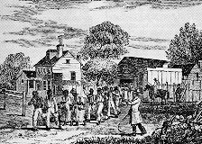
With a new Introduction by Dana Nelson
A mother's famous abolitionist journal and her daughter's pro-slavery memoir brought together in one comprehensive volume.
A mother's abolitionist journal and her daughter's pro-slavery memoir are brought together here for the first time in a single volume with a comprehensive introduction by Dana Nelson. Representing vastly differing political viewpoints, when read together both journal and memoir provide a rich, subtle, and complex interplay.
When the internationally famous British actress Frances Anne Kemble married Philadelphian Pierce Butler in 1834, she had no idea that he was heir to a vast slave plantation in Georgia. Kemble was an abolitionist, a position reinforced by what she considered to be the superiority of her native British culture and politics. Horrified at the situation she found herself in, she kept a journal in the form of letters to her close friend, Elizabeth Sedgwick. The result is an impassioned, dynamic chronicle of her work to improve the living conditions of the slaves and intercede on their behalf with her husband and the plantation overseers, and of her increasing concern with the plight of women slaves. Kemble poignantly and eloquently explores both gender issues as they intersect with race and her own increasingly apparent disempowerment as a woman struggling to function in a repressive patriarchal culture.
While Kemble's journal is fascinating in the context of antebellum abolitionism, her daughter's account provides intriguing insight into Reconstruction from the privileged Southern woman's point of view. Published in 1883, Leigh's memoirs focus on her return to the plantation where she had been raised by her father---who had won exclusive custody when he and Kemble divorced---and her attempts to renegotiate her relationship to her father's former slaves in the days after emancipation.
Both mother's and daughter's accounts are written in highly readable, accessible, and eloquent prose. But that's where the similarities end. For example, upon returning to the ravished plantation, Leigh tenderly rehangs a portrait of Robert E. Lee over the mantle while newly freed slaves look on. Her final chapter is, in fact, an apologia for slavery. Sadly, Kemble's name is never mentioned in Leigh's journal, though her attitude toward her mother is evident in her intemperate account of another Englishwoman.
Highly accessible to the modern reader, this volume is of interest to scholars and nonacademics alike who are interested in race and gender studies, women's studies, history, or American literature.
An Ann Arbor Paperback.
Dana Nelson is Assistant Professor of English, Louisiana State University. Her most recent book is The Word in Black and White: Reading "Race" in American Literature, 1638--1867.
Return to New Books subject areas
6 x 9, ca 426 pagesISBN 0-472-09522-6
cloth 42.50E (tentative)
ISBN 0-472-06522-X
paper 18.95E (tentative)
August